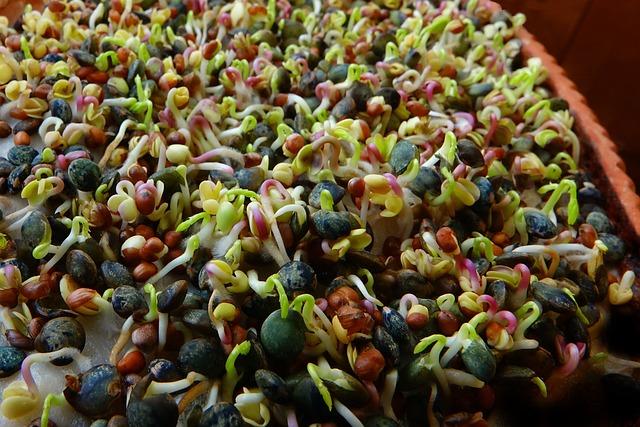In today’s fast-paced world, maintaining hormonal balance can often feel like an uphill battle, leaving many of us searching for effective strategies to support our well-being. Hormones, the body’s chemical messengers, play a crucial role in regulating everything from mood and energy levels to metabolism and reproductive health. When these hormones fall out of sync, it can lead to a cascade of physical and emotional challenges. Fortunately, one of the most accessible and impactful ways to nurture hormonal harmony is through our diet. In this article, we will explore the best diet plans specifically designed to support hormonal balance. With an empathetic approach, we aim to guide you through practical and nourishing dietary choices that can help restore equilibrium, enhance vitality, and promote overall health. Whether you’re dealing with stress, fatigue, or other hormonal-related concerns, these diet plans offer a pathway to reclaiming balance and thriving in your everyday life.
Understanding Hormonal Imbalance and Its Impact on Health
Achieving hormonal balance is crucial for overall well-being, and diet plays a significant role in this journey. Certain foods can either support or disrupt your body’s hormonal harmony. Here are some dietary adjustments to consider:
- Increase Omega-3 Fatty Acids: Incorporate foods like salmon, walnuts, and flaxseeds, which help in reducing inflammation and supporting hormonal function.
- Limit Processed Sugars: Excess sugar can lead to insulin resistance, affecting hormones like insulin and cortisol. Opt for natural sweeteners or whole fruits instead.
- Embrace Whole Grains: Foods such as quinoa, brown rice, and oats can stabilize blood sugar levels and prevent insulin spikes.
- Include Cruciferous Vegetables: Broccoli, cauliflower, and kale are known for their role in detoxifying the liver, which is crucial for hormonal balance.
- Prioritize Protein: Lean proteins like chicken, tofu, and legumes can help in maintaining muscle mass and balancing hormones.
| Food Group | Benefits for Hormonal Balance |
|---|---|
| Healthy Fats | Supports production of sex hormones |
| Fiber-rich Foods | Aids in estrogen metabolism |
| Fermented Foods | Promotes gut health and hormone regulation |
Understanding the connection between diet and hormonal health empowers you to make informed choices that can enhance your quality of life. By focusing on nutrient-dense foods and mindful eating, you can create a balanced environment for your hormones to thrive.

Nutrient-Rich Foods to Support Hormonal Harmony
Achieving hormonal balance is closely tied to what we eat, and integrating nutrient-rich foods into your diet can make a significant difference. These foods are packed with essential vitamins and minerals that help regulate and support hormonal functions. Here are some of the key players you should consider:
- Leafy Greens: Spinach, kale, and Swiss chard are rich in magnesium, which plays a crucial role in balancing hormones like estrogen and progesterone.
- Fatty Fish: Salmon, mackerel, and sardines are high in omega-3 fatty acids, which help reduce inflammation and support hormone production.
- Nuts and Seeds: Almonds, walnuts, flaxseeds, and chia seeds provide healthy fats and fiber, aiding in hormone regulation and maintaining stable blood sugar levels.
- Cruciferous Vegetables: Broccoli, Brussels sprouts, and cauliflower contain compounds that assist in estrogen metabolism, helping maintain a healthy hormonal balance.
| Food | Key Nutrient | Hormonal Benefit |
|---|---|---|
| Avocado | Healthy Fats | Supports cholesterol-derived hormones |
| Berries | Antioxidants | Reduces oxidative stress |
| Eggs | Vitamin D | Regulates insulin and thyroid hormones |
Incorporating these foods into your daily meals not only aids in achieving hormonal harmony but also promotes overall health and well-being. Remember, consistency is key, so try to make these nutrient-rich foods a staple in your diet.

Lifestyle Changes to Complement Your Hormone-Balancing Diet
- Mindful Movement: Incorporating regular exercise is crucial in maintaining hormonal balance. Choose activities that you enjoy and can stick with, such as yoga, pilates, or brisk walking. These exercises not only help in managing stress but also improve insulin sensitivity and support metabolic health.
- Quality Sleep: Never underestimate the power of a good night’s sleep. Aim for 7-9 hours of restful sleep each night to help regulate cortisol and other hormones. Consider creating a bedtime routine, limiting screen time before bed, and keeping your bedroom cool and dark to enhance sleep quality.
- Stress Management: Chronic stress can wreak havoc on your hormonal balance. Engage in activities that promote relaxation and mental well-being, such as meditation, deep-breathing exercises, or spending time in nature. These practices can help lower cortisol levels and improve overall hormonal health.
| Change | Benefit |
|---|---|
| Mindful Movement | Improves insulin sensitivity |
| Quality Sleep | Regulates cortisol levels |
| Stress Management | Lowers cortisol |
Adopting these lifestyle changes can significantly enhance the effectiveness of your hormone-balancing diet. Remember, the goal is to create a harmonious environment for your body to thrive. Listen to your body, make gradual changes, and celebrate your progress along the way.

Creating a Personalized Diet Plan for Lasting Hormonal Balance
Crafting a diet plan that suits your unique hormonal needs is a transformative journey. It’s essential to understand that what works for one person may not be suitable for another. Begin by considering your body’s specific requirements and any existing hormonal imbalances. Listening to your body’s cues is crucial in identifying foods that make you feel energized and those that might lead to discomfort. Consider consulting with a healthcare professional or a nutritionist to gain insights into your hormonal health and dietary needs.
To support your body’s natural hormonal rhythms, incorporate a variety of nutrient-dense foods into your meals. Here’s a simple guide to get you started:
- Protein-rich foods: Lean meats, legumes, and nuts can help stabilize blood sugar levels, which is crucial for maintaining hormonal balance.
- Healthy fats: Avocados, olive oil, and fatty fish like salmon are excellent choices for supporting hormone production.
- Fiber-rich vegetables: Broccoli, spinach, and carrots not only aid digestion but also help in detoxifying the body, keeping hormones in check.
- Whole grains: Quinoa, brown rice, and oats can provide sustained energy and support adrenal health.
For a clearer understanding of how these foods can be integrated into your daily routine, consider the following sample meal plan:
| Meal | Food Options |
|---|---|
| Breakfast | Oatmeal with almond milk and berries |
| Lunch | Grilled chicken salad with mixed greens and olive oil dressing |
| Snack | Hummus with carrot sticks |
| Dinner | Baked salmon with quinoa and steamed broccoli |




